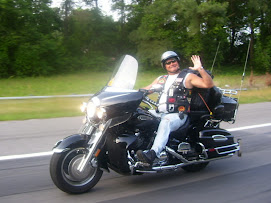I just read this on the news website:
"God Is My Co-Pilot" Author Dies
POSTED: 1:10 pm EST February 27, 2006
WARNER ROBINS [Georgia] -- Retired Brig. Gen. Robert L. Scott, author of "God is My Co-Pilot," died early Monday. He was 97. Scott, a native of Macon, rose to nationwide prominence during World War II, first as a fighter ace in the China-Burma-India theater then as author of "God is My Co-Pilot," an account of his wartime exploits. The book was later made into a 1945 feature-length movie. Scott -- who retired from the Air Force as a brigadier general -- never lost his "fighter ace" prominence and later used that fame to great effect in supporting Middle Georgia's Museum of Aviation. "He's been our resident hero, cheerleader and biggest fan," said Pat Bartness, museum foundation president and chief operating officer. "He's been the biggest drawing card we've had. Without him, the museum would just be a different place and not as exciting. He will be sorely missed." When Scott joined the museum staff in the mid-1980's, he had accomplished more than most people dream of, according to museum director Paul Hibbitts. "Because of that, his impact has not only been local but national," said Hibbitts. "I've run into people all over the country who have asked me about him. His being part of the museum has opened a lot of doors for us. He's added a lot of credibility. He put us on the map." Scott's story is the stuff of legend: He flew a homemade glider off the roof of a three-story house at age 12 and crash landed on a spiky Cherokee rose bush. With the Flying Tigers, he earned five of his 22 aerial victories in May 1942 when he flew more than 200 hours in combat. He won three Distinguished Flying Crosses, two Silver Stars and five Air Medals. Scott had to tell a couple of little white lies to get into the fight against Japan. At 33, he was considered too old for combat when the Japanese attacked Pearl Harbor, and he expected to stay at his training job in California. Then came a phone call. "One night about 3 a.m., the phone rang. A man asked `did you ever fly a B-17,' Scott said in a 1996 interview. "So I said yes, I have flown a B-17. But I never had. I got my airplane and went to work." He was assigned to a mission to bomb Tokyo from China -- but the plan was scrubbed, so his job reverted to flying planes loaded with gasoline and ammunition over Japanese-held territory to Gen. Claire Chennault's "Flying Tigers" in China. Scott later wangled his way into the legendary unit. Scott was an outspoken proponent of an independent Air Force. His stance didn't make him popular at the Pentagon, where he was assigned after the war to a board studying whether to create a separate Air Force. Scott's public support for independence got him ousted from the board. "They exiled me to Arizona to command a fighter-bomber wing," Scott said. "I considered that a promotion." In the mid 1980's, he was a retired widower getting lonesome in Arizona. Then, the museum called and asked for memorabilia. He had a picture that was too big to mail, Scott said, so he delivered it in his car. He stayed on and works for the museum as its official fundraising chairman and unofficial piece of living history. "I'm thinking about writing a new book,"' Scott said in 1996, as autograph seekers approached him, "and calling it `You Can Go Home Again.' "
Copyright 2006 by The Associated Press. All rights reserved.





0 comments:
Post a Comment